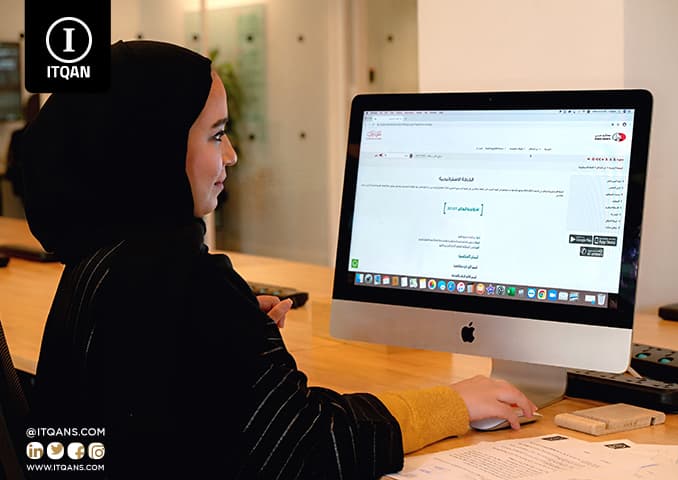Some investors would like to know the costs of establishing a company in Dubai because Dubai is one of the most attractive business destinations for investors from around the world, as it offers an advanced business environment and broad investment opportunities. One of the key factors that makes Dubai a preferred destination for establishing companies is its flexible and stimulating tax system. In this article, we’ll look at the costs of setting up a company in Dubai, focusing on the unique tax system that makes the city an attractive destination for business. Dubai is known as a tax-free zone on personal and corporate income, allowing investors to fully realize their profits without tax burdens. Dubai also provides a number of tax facilities and exemptions in some free zones, which enhances its attractiveness as a global commercial center. In this context, we will review the tax benefits available to investors, and how to benefit from them when establishing a company in Dubai. We will review many details about the costs of establishing a company in Dubai .

جدول المحتوى
ToggleCosts of setting up a company in Dubai, taxes
When setting up a company in Dubai , taxes play an important role in determining the total cost of the business. Here are some key factors related to tax costs to consider:
- Income Taxes : Dubai is famous for its flexible tax system, as it does not impose taxes on personal or corporate income, whether on profits made inside or outside the Emirates. This enhances Dubai’s attractiveness as a destination for foreign investments.
- Value Added Taxes (VAT) : Although there are no income taxes, Dubai applies a 5% VAT on most goods and services. Therefore, companies must take into account the impact of this tax on the prices of their products and services.
- Customs duties : Customs duties vary depending on the type of imported product, and affect production and marketing costs. Some products in free zones are exempt from customs duties, which reduces overall costs.
- Free Zones : Free zones in Dubai provide significant tax benefits, including exemption from income taxes for certain periods, and exemption from customs duties on imported and exported goods. This makes it an attractive option for foreign companies seeking to reduce tax costs.
- Administrative costs : These costs include procedures associated with registering the company, obtaining licenses, and fulfilling legal requirements. These costs may vary based on the type of company and business activity.
These factors make it essential for investors to carefully analyze the tax-related costs when deciding to set up a company in Dubai, to ensure they make the most of the tax benefits available.

Steps to establish a company in Dubai – taxes
Establishing a company in Dubai requires following a set of structured steps, taking into account tax aspects. Here are the basic steps:
- Defining the business activity : The first step is to define the company’s commercial activity. The type of license and tax benefits vary based on the activity the company will undertake.
- Choosing the legal form of the company : You must choose the appropriate legal form, such as a limited liability company (LLC), a branch of a foreign company, or a free zone company. Each legal form has special tax requirements and regulatory procedures.
- Choosing a trade name : You must choose an appropriate trade name that is consistent with the laws of the UAE and ensure that there are no intellectual property rights reserved for the same name.
- Submitting an initial approval request : A request is submitted to the Department of Economic Development to obtain initial approval of the commercial activity and legal form.
- Choosing the company’s location : Determining a suitable location for the company’s headquarters, whether it is in Dubai or in one of the free zones. Choosing a free zone can grant tax breaks, such as exemption from customs duties and income tax.
- Preparing legal documents : This includes preparing the company’s articles of association and articles of association, and ensuring that all legal requirements are met.
- Obtaining a commercial license : After completing all documents and approvals, a commercial license must be obtained from the Department of Economic Development or from the competent authority in the free zone.
- Registration for Value Added Tax (VAT) : If a company’s turnover exceeds the mandatory VAT registration threshold (AED 375,000 annually), the company must be registered in the VAT system.
- Opening a bank account : Opening a bank account for the company to manage financial transactions.
- Obtaining additional approvals (if any) : Depending on the type of business activity, the company may need to obtain additional approvals from the relevant authorities.
- Compliance with tax laws : After commencing operations, the company must commit to submitting tax reports and adhering to applicable tax laws, including value-added tax.
These steps are essential to set up a company in Dubai keeping in mind the tax factors. Requirements and procedures can vary based on the type of company and business activity chosen.
Advantages of establishing a company in Dubai: Taxes
Setting up a company in Dubai comes with many advantages, especially regarding the tax system. Here are some key features:
- Income tax exemption : Dubai does not impose taxes on personal income or corporate profits, which means that companies and individuals can keep all of their profits. This is a major attraction for investors.
- Exemption from free zones from taxes : Companies established in free zones in Dubai enjoy complete exemption from income taxes for periods ranging from 15 to 50 years, with the possibility of renewing the exemption. This enables companies to significantly improve their profits.
- No Capital Taxes : Dubai does not impose taxes on money or capital transfers, making it easy to transfer profits and capital without incurring any additional fees.
- Low Value Added Tax (VAT) : The VAT rate in Dubai is only 5%, which is one of the lowest rates in the world. This reduces operational costs for companies compared to countries that impose higher tax rates.
- Ease of dealing with the tax system : Dubai is characterized by a simple and clear tax system, which reduces administrative complications and saves time and effort for companies.
- Avoid double taxation : The UAE has agreements to avoid double taxation with many countries, which means that companies will not pay taxes on their profits in Dubai and in their home countries as well.
- Stability of tax laws : Dubai is characterized by a stable and reliable legal and tax system, which provides a safe and stable business environment for long-term investors. These advantages make Dubai an attractive destination for global investors and companies looking for a favorable business environment with multiple tax benefits.

Types of Dubai Free Zone companies
Conditions for establishing a company in Dubai Taxes
When establishing a company in Dubai , investors must comply with several tax-related conditions and controls, in addition to other requirements. Here are some key terms related to taxes:
- Value Added Tax (VAT) Registration :
- Companies that must register in the VAT system.
- Registered companies must submit periodic VAT reports and pay tax dues on the specified dates.
- Commitment to taxes in free zones : Although free zones provide tax exemptions, companies in these zones are obligated to adhere to the conditions specified in their contracts with the authorities supervising the free zone, including the obligation not to conduct business in the local market without a license.
- Maintain Financial Records : Businesses are required to maintain accurate and complete financial records for a period of at least five years. These records should include all business transactions, VAT reports, invoices, and any other financial documents.
- Obtaining the necessary licenses : Companies must obtain all necessary licenses from the relevant authorities, such as the Department of Economic Development in Dubai or the competent authorities in free zones.
- Compliance with local and international tax laws : Companies must comply with local tax laws, in addition to any international tax-related agreements of which the UAE is a part.
- Non-double taxation : If a company does business in other countries as well, it may need to adhere to double taxation avoidance agreements that the UAE has signed with those countries.
- Registration with the Industry Regulatory Authority : Some commercial activities may require additional approvals from competent regulatory bodies, such as the Telecommunications Regulatory Authority or the Health Authority.
These conditions aim to regulate economic activity, ensure companies comply with tax laws, and maintain financial transparency. Adherence to these terms helps businesses operate smoothly and benefit from the favorable business environment in Dubai.
In conclusion, Dubai is considered one of the most prominent global investment destinations thanks to its stable economic environment and flexible tax system. The costs of setting up a company in Dubai are very competitive compared to many other global markets, due to its attractive tax exemptions, especially in free zones, and its lack of taxes on personal and corporate income. Dubai provides a variety of investment opportunities, with a supportive business environment that facilitates the process of establishing companies and encourages growth and innovation. Therefore, choosing Dubai as a business establishment destination can be a profitable strategic move for investors wishing to expand and reach new markets.
Frequently asked questions about setting up a company in Dubai – taxes
Does Dubai impose taxes on corporate income?
No, Dubai does not impose taxes on corporate or individual income, making it an attractive destination for investors.
What is the current VAT rate in Dubai?
The current rate of VAT in Dubai is 5%.
Can companies in Dubai’s free zones benefit from tax exemptions?
Yes, companies in free zones enjoy tax exemptions, including exemption from income taxes for specific periods, in addition to exemptions from customs duties.
What are the tax obligations for companies operating in the local market in Dubai?
Companies operating in the local market must register in the value-added tax system and commit to submitting periodic reports and paying tax dues.
Should companies keep financial records?
Yes, businesses must maintain accurate and complete financial records for at least five years.


















